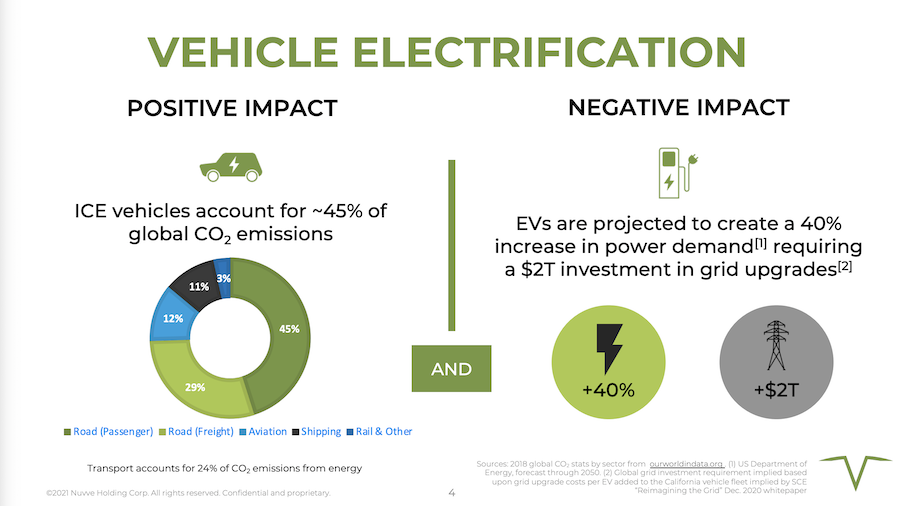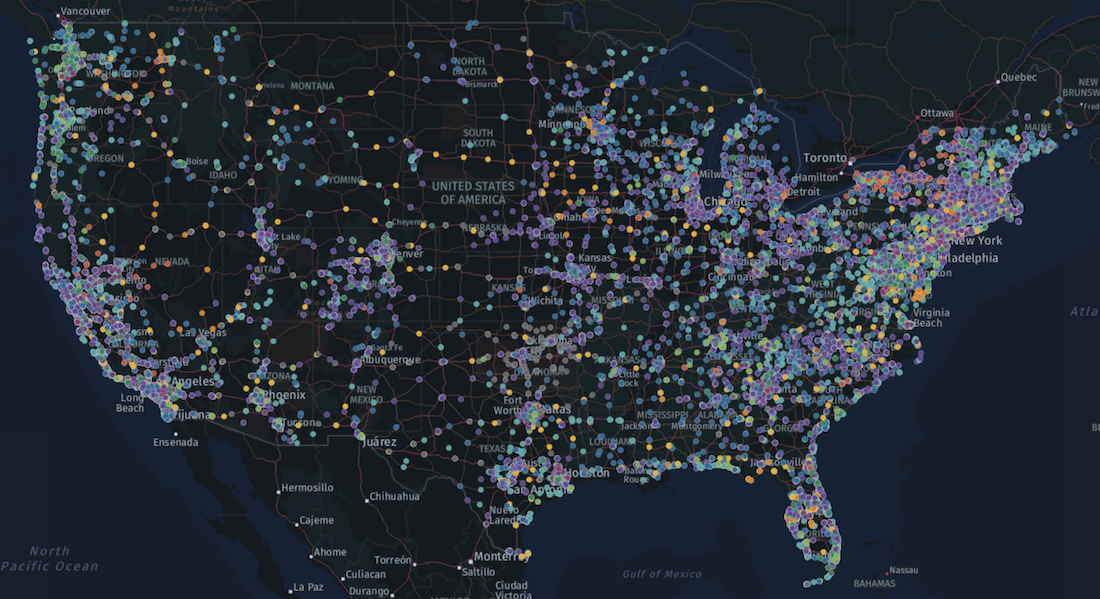Decarbon Daily - US EV Action Plan & $70 Billion from Toyota
Inside this issue
Two Critical Impacts of Vehicle Electrification
With the announcement of the EV Charging Action Plan, the US government is taking steps to deploy 500,000 charging stations across the US along with enhancing incentives for purchasing consumer and commercial EVs.
There are two primary impacts to consider with vehicle electrification:
1. Reducing CO2 emissions as EVs are adopted
2. Increasing the power demand and requiring grid improvements

Source: Nuvve Investor Presentation
Lower Emissions Footprint for EVs
There is some debate about the value of emission reduction for electric vehicles compared to ICE vehicles. Taking into consideration the full life-cycle of the battery materials, the emission reduction may not be as large as we once believed. However, according to the ICCT, battery electric vehicles have 60%-68% lower life-cycle emissions than gasoline cars.
Supply chains for automakers will require dramatic changes as well. Rare earth mineral supply and demand will be the most significant change for auto manufacturers. Read more about mineral demand in an earlier issue. The Infrastructure Law includes $6 billion in grants for developing the North American battery supply chain and increasing battery manufacturing and recycling facilities in the US. Bringing the supply chain closer to the auto manufacturers will significantly reduce Scope 1 and Scope 2 emissions for the EV automakers.
As consumer adoption accelerates, lower total emissions should be visible and measured.
Power Demand Increases by ~40%
Today, there are about 49,000 electric vehicle charging stations operated by various different charging networks. The plan to deploy 500,000 charging stations in 8 years is ambitious and transformative.

Check out an earlier article mapping charging station locations across the US.
The Federal Highway Administration and Department of Transportation released a request for information on guidance for EV charging infrastructure deployment.
A key consideration for deploying charging stations is cost. Level 3 charging versus Level 2 charging changes the cost profile dramatically. Estimates for a 50kW charger are ~$75k to $100k with faster 150-300kW chargers costing $250k to $300k. Level 2 charging stations are the most common today and often charge a vehicle within 4 to 5 hours from empty. Level 2 charging infrastructure costs $20k to $50k. Single units are even less expensive.
Deploying the chargers may require grid upgrades to take advantage of opportunities with energy management and storage. For example, Nuvve offers vehicle-to-grid (V2G) technology in order to harness the power in the battery when the vehicle is charging.
Electrifying transportation will be a complete transformation for the US infrastructure. Today there are about 115,000 gas stations in the US. Some will become obsolete requiring remediation, others will be modified to accommodate both EVs and gasoline vehicles, and some will remain gas stations for years to come.
Exciting times are ahead for the electrification of transportation, however, companies may need to plan for a slower pace of change to match consumer demand and behavior. Today, nearly 2% of US vehicles are EVs and by 2040 it is expected to be near 30% of the total vehicles. There is no doubt that EVs are a high-growth market that is creating high investor and consumer expectations.
Those expectations come with a myriad of risks.There is a tremendous amount of investor and media interest that may increase risks and the possibility of disappointing outcomes. Poor economic returns, damaging local grids, or causing too much demand during peak hours are all possibilities. Even with government assistance to build out the charging stations, communities, companies, and local regulators must ensure that the economic, environmental, and social risks are not ignored.
Inside this Issue
🏛 FACT SHEET: The Biden-Harris Electric Vehicle Charging Action Plan
♻️ Sweep, which measures carbon emissions through companies’ supply chains, raises $22M
🪨 XELS to offer carbon credit backed NFTs on new blockchain platform
🚢 Study: Carbon Capture is Costly but Feasible for Tankers
🔋 Deep Dive on EV Data Shows Realities of Medium-Duty Fleet Electrification
🚗 Toyota commits $70 billion to electrification but hesitant about battery-powered future
Articles in this issue